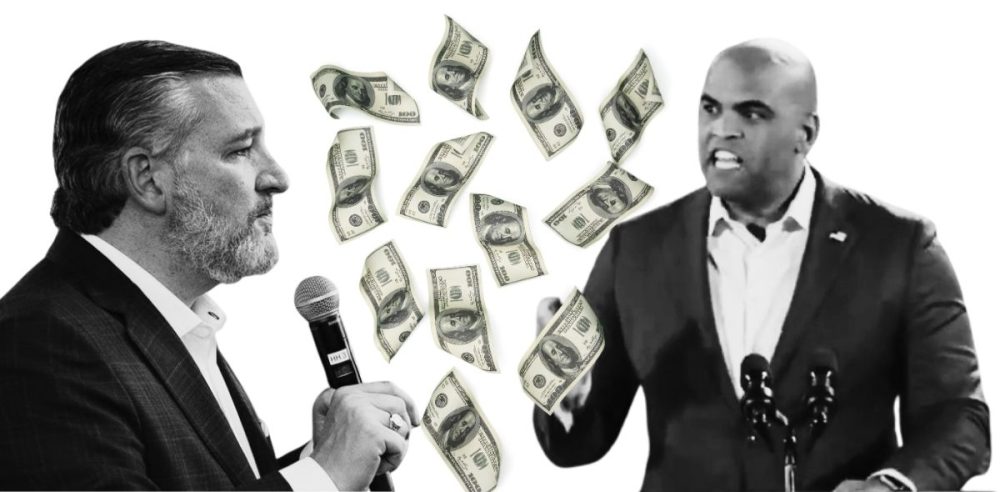The Texas U.S. Senate seat contest between incumbent U.S. Sen. Ted Cruz and Democratic challenger Colin Allred has officially become the most expensive Senate race in American history.
As of mid-October, Cruz and Allred have raised a combined total of $165 million, far exceeding the previous record of $125 million set during the 2018 race between Cruz and Beto O’Rourke.
One catalyst for the high campaign costs is Texas’ large media market.
In particular, the high demand for advertising slots, particularly during prime-time events like Dallas Cowboys games, has led to eye-popping ad rates. One 30-second advertisement spot during a recent Cowboys game reportedly cost Cruz’s campaign $171,000, according to the Houston Chronicle.
However, according to the Federal Election Commission’s records, as of October 31, Allred led overall in total dollars raised at $76 million compared to Cruz’s $75 million.
Compared to other high-stakes Senate races this year, such as those in Ohio and Montana, Texas’ contest beats them out as the most expensive. Ohio’s race is reported to have raised $127 million, while Montana follows closely at $113 million.
While the race in Texas is setting financial records, it still has a long way to go to reach the overall spending record for any gubernatorial or Senate race, as the 2022 Texas gubernatorial race between Gov. Greg Abbott and Beto O’Rourke saw a combined spending of $227 million.
Cruz and Allred’s ample spending has led to a considerably close race. Recent polls indicate that Cruz holds a narrow lead over Allred with less than a few days until the November 5 General Election.
A New York Times/Siena poll recently reported Cruz at 49% and Allred at 45%.
An Activote poll published last week gave Cruz a more considerable lead at 53% and Allred at 47%. In earlier polls throughout the year, Cruz held the following leads: 5.6% on October 17, 4.8% on October 1, 10.2% on August 29, and 7.8% on July 19.
An Emerson College poll shows Cruz at 48% and Allred at 47%, further highlighting the importance of the Gen Z and Millenial votes for the candidates.
“Significant portions of several key constituent groups are undecided in the Democratic Senate Primary, including Hispanic Democratic voters, Gen Z and Millennial voters, and voters without a college degree,” said Spencer Kimball, the executive director of Emerson College Polling.
“To avoid a runoff, Allred needs to make inroads with these voters, like he has with Democrats in their 60s and those with postgraduate degrees, 52% of whom respectively support him,” Kimball added.


